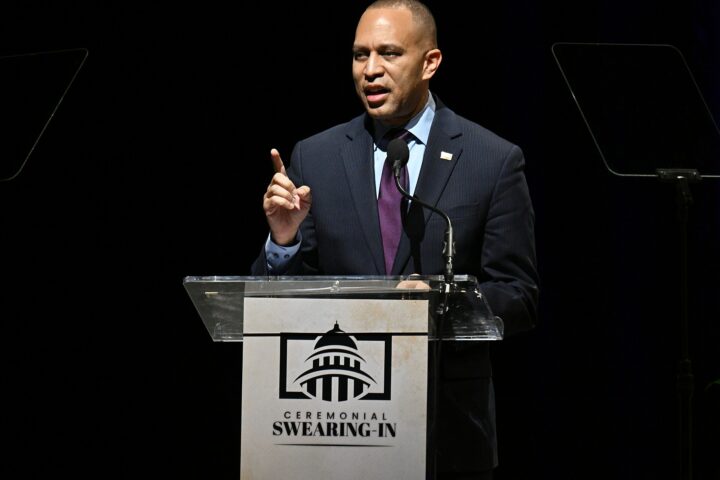The House on Monday advanced a resolution targeting Rep. Jesús “Chuy” García of Illinois, deepening rifts within the Democratic caucus at a moment when party leaders are struggling to project unity against Republicans and President Trump.
The measure, introduced by Rep. Marie Gluesenkamp Perez of Washington, condemns García for announcing his retirement only after the state’s filing deadline had passed — a move that ensured his chief of staff would appear as the sole Democrat on the primary ballot to replace him.
A motion to table the measure failed narrowly, 211–206, with Gluesenkamp Perez and Rep. Jared Golden of Maine breaking ranks to join Republicans. The resolution accuses García of “undermining the process of a fair and free election” and declares his actions “incompatible with the spirit” of the Constitution.
The vote delivered a fresh political headache for Democratic leaders, who opposed the measure and rushed to deflect scrutiny from García’s decision. It also underscored the ideological and generational divides that continue to complicate the party’s efforts to present a unified front. Minority Leader Hakeem Jeffries of New York offered an unequivocal defense, describing García as a reliable progressive voice in Chicago’s minority communities. “I do not support this so-called resolution of disapproval. And I strongly support Congressman Chuy García,” Jeffries said, insisting that voters are more concerned about “the high cost of living” than intraparty disputes.
García, 69, filed for reelection on Oct. 27 but reversed course shortly after the Nov. 3 deadline for candidates to enter the race had expired. He said he chose to step aside because “his family needs him,” noting his wife’s long-standing diagnosis of multiple sclerosis. His chief of staff, Patty García — no relation — filed to run just before the 5 p.m. deadline, and García quickly endorsed her, praising her experience and saying she “knows the issues, knows the players in Washington, and has the talent and heart to deliver real results for working families.”
To Gluesenkamp Perez and other centrist Democrats, the timing amounted to manipulation of the electoral system. On CNN, she acknowledged the discomfort of rebuking a fellow Democrat. “It’s not fun to call out a member of your own party,” she said. But, she added, “it’s important that we’re consistent and … we’re loyal to the soil, we’re loyal to our constituents, and say, like, election subversion is always wrong. That’s not how we run things in this country, and that’s not the party that I want to be a part of.”
In a statement on Nov. 12, García’s spokesperson, Fabiola Rodriguez-Ciampoli, defended the congressman’s timing as driven by “his health, his wife’s worsening condition and his responsibility to the grandchildren he is raising after the death of his daughter.” She insisted that García “followed every rule and every filing requirement laid out by the State of Illinois,” and urged colleagues to extend compassion: “At a moment like this, he hopes his colleagues, especially those who speak about family values, can show the same compassion and respect that any family would want during a health crisis.”
The dispute now stands as another reminder of the Democrats’ internal strains — between progressives who rally around longtime movement figures like García and moderates who warn that the party cannot credibly condemn election interference while overlooking questionable decisions within its own ranks.
[READ MORE: Trump Says He Will Sign Legislation Releasing Epstein Files, Calls Controversy a “Democrat Problem”]








